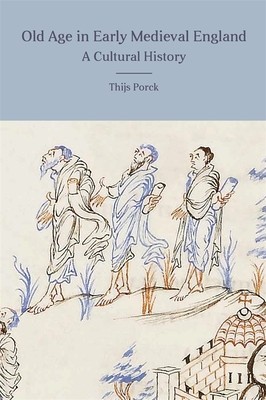
- We will send in 10–14 business days.
- Author: Thijs Porck
- Publisher: Boydell Press
- ISBN-10: 1783276347
- ISBN-13: 9781783276349
- Format: 15.6 x 23.4 x 1.6 cm, softcover
- Language: English
- SAVE -10% with code: EXTRA
Reviews
Description
First full-length study of the notion and concept of old age in early medieval England.
How did Anglo-Saxons reflect on the experience of growing old? Was it really a golden age for the elderly, as has been suggested? This first full survey of the Anglo-Saxon cultural conceptualisation of old age, as manifested and reflected in the texts and artwork of the inhabitants of early medieval England, presents a more nuanced and complicated picture. The author argues that although senescence was associated with the potential for wisdom and pious living, the Anglo-Saxons also anticipated various social, psychological and physical repercussions of growing old. Their attitude towards elderly men and women - whether they were saints, warriors or kings - was equally ambivalent.Multidisciplinary in approach, this book makes use of a wide variety of sources, ranging from the visual arts to hagiography, homiletic literature and heroic poetry. Individual chapters deal with early medieval definitions ofthe life cycle; the merits and drawbacks of old age as represented in Anglo-Saxon homilies and wisdom poetry; the hagiographic topos of elderly saints; the portrayal of grey-haired warriors in heroic literature; Beowulf asa mirror for elderly kings; and the cultural roles attributed to old women.
EXTRA 10 % discount with code: EXTRA
The promotion ends in 17d.17:06:25
The discount code is valid when purchasing from 10 €. Discounts do not stack.
- Author: Thijs Porck
- Publisher: Boydell Press
- ISBN-10: 1783276347
- ISBN-13: 9781783276349
- Format: 15.6 x 23.4 x 1.6 cm, softcover
- Language: English English
First full-length study of the notion and concept of old age in early medieval England.
How did Anglo-Saxons reflect on the experience of growing old? Was it really a golden age for the elderly, as has been suggested? This first full survey of the Anglo-Saxon cultural conceptualisation of old age, as manifested and reflected in the texts and artwork of the inhabitants of early medieval England, presents a more nuanced and complicated picture. The author argues that although senescence was associated with the potential for wisdom and pious living, the Anglo-Saxons also anticipated various social, psychological and physical repercussions of growing old. Their attitude towards elderly men and women - whether they were saints, warriors or kings - was equally ambivalent.Multidisciplinary in approach, this book makes use of a wide variety of sources, ranging from the visual arts to hagiography, homiletic literature and heroic poetry. Individual chapters deal with early medieval definitions ofthe life cycle; the merits and drawbacks of old age as represented in Anglo-Saxon homilies and wisdom poetry; the hagiographic topos of elderly saints; the portrayal of grey-haired warriors in heroic literature; Beowulf asa mirror for elderly kings; and the cultural roles attributed to old women.


Reviews